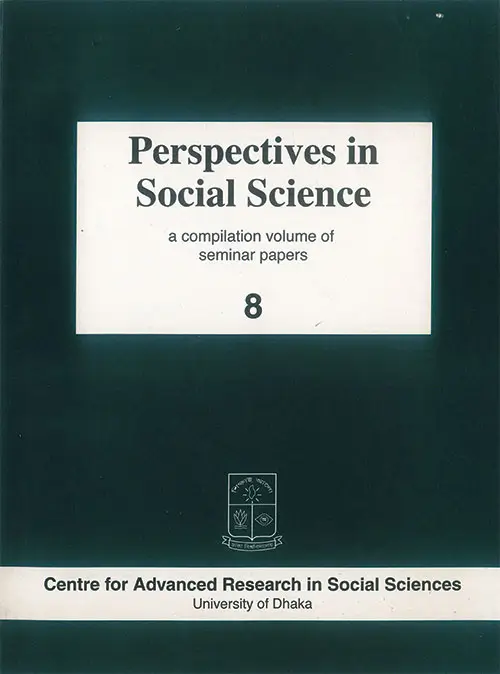
Perspectives in Social Science
Volume 8 July 2005
Perspectives in Social Science
Passage to Democracy: The Bangladesh Experience
Perspectives in Social Science
Volume 8 July 2005
DOI:
ISSN :
Abstract
This paper attempts to inquire into the changing pattern of Bangladesh politics as the consequence of conflict between authoritarianism and democracy. It argues that 'from the abode of authoritarianism Bangladesh has been struggling for a 'democratic polity'. The political class, which operates the vehicle of this struggle, generally, has a great zest for democracy. The movement against authoritarian rule of General Ershad paved the way for democratic transition and consolidation." However, the efforts for consolidating and flourishing democratic achievements. have been facing serious challenges from the existing and emerging aspects of authoritarianism. These and other related issues have been discussed in this article. The account of Bangladesh's headway towards democracy against the tide of authoritarianism contains both successful and unsuccessful scores.' This is the consequence of her chequered history of struggle for establishing democracy. The most recent experiences in this cycle are the liberation war of 1971, anti-autocratic movement of 1990, and efforts for constitutional amendment on caretaker government during 1996. Even though all the attempts to institutionalise democracy could not be termed as fully success, they were no failed story either. By now the country has demonstrated its democratic credibility with the holding of three free and fair parliamentary general elections. At present people's representatives run the country, hence, rules by raja, budsha, nawab, governor general, viceroy or army generals have become the part of history. Even then, the social-psyche of the country is closely intertwined with the allegiance to authoritarianism. A Bangladeshi political analyst (Dr. Mahabubullah 2003) suggests that the existence of authoritarianism in Bangladesh could be noticed. with a very little attention. However, it is often argued that the structure and functioning of Bangladesh's Political Parties inside and outside of the, so far, three elected parliaments since 1991, approves, among others, not very weak presence of authoritarianism. "The people of Bangladesh could not get rid of the class-based authoritarian hierarchical social order (Khurshida Begum 1988). enably, the kinship relations and hereditary style of leadership dominate the political landscape of the country. The people, in general, to whom the country belongs, has very little or nothing to do in this regard. Observers found, 'The inability of millions, to do anything about the present art of Bangladesh politics, making people terribly aware of the huge damage which the hereditary politics inevitably does to a nascent democracy (ub-editorial, New Age, Oct. 9, 2003)'.
In fact the hereditary style o politics could hardly be viewed as democratic. In democracy, leadership is elected through a competitive process. Accordingly, it is
